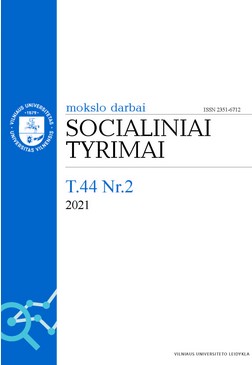Jaunų moterų perfekcionizmo, savęs sudaiktinimo ir rizikos susirgti valgymo sutrikimais ryšys Lietuvoje
Relationship between perfectionism, self-objectification and risk of eating disorders in young women in Lithuania
Author(s): Justina PaluckaitėSubject(s): Gender Studies, Psychology of Self, Behaviorism
Published by: Vilniaus Universiteto Leidykla
Keywords: behavior; eating disorders; perfectionism; self-objectification;
Summary/Abstract: The goal of this study was to examine risk of eating disorders, perfectionism and self-objectification, as well as the interrelationship between perfectionism and self-objectification in young females. This study was based on the theory of the Cult of Thinness and the dominant culture that supports it. Such research was never conducted in Lithuania before. It was hypothesized that there would be a positive relationship between risk of eating disorders, perfectionism and self-objectification. Also, it was predicted that this relationship would be different in women without risk of eating disorders, and that there would be a positive relationship between perfectionism and self-objectification. A total of 217 females aged 18–24 participated in this study. Their average age was 20 years. The research was conducted in Lithuanian Facebook groups for university students and those interested in healthy eating and dieting. Several instruments were used in the research: Eating Attitudes Test – 26 (EAT–26) (Garner ir kt., 1982), Almost Perfect Scale – Revised (APS-R) (Slaney, Mobley, Trippi, Ashby ir Johnson, 2001) and Objectified Body Consciousness Scale (OBC) (McKinley ir Hyde, 1996). The participants were also asked about their gender, age and place of residence. The results revealed that women at risk for eating disorders are associated with higher levels of body shame. Women who do not have a risk of developing eating disorders, are more inclined to set high standards for themselves than those who have a risk of developing it. Women at risk for eating disorders are also more likely to see themselves as failing to meet their personal standards for performance than those with no risk of eating disorders. Also, the study showed that the higher the degree of women’s discrepancy between expectations and performance, the higher is the extent of their body shame. These results could be helpful in the treatment of young women with eating disorders and disordered eating.
Journal: Socialiniai tyrimai
- Issue Year: 44/2021
- Issue No: 2
- Page Range: 8-33
- Page Count: 26
- Language: Lithuanian

